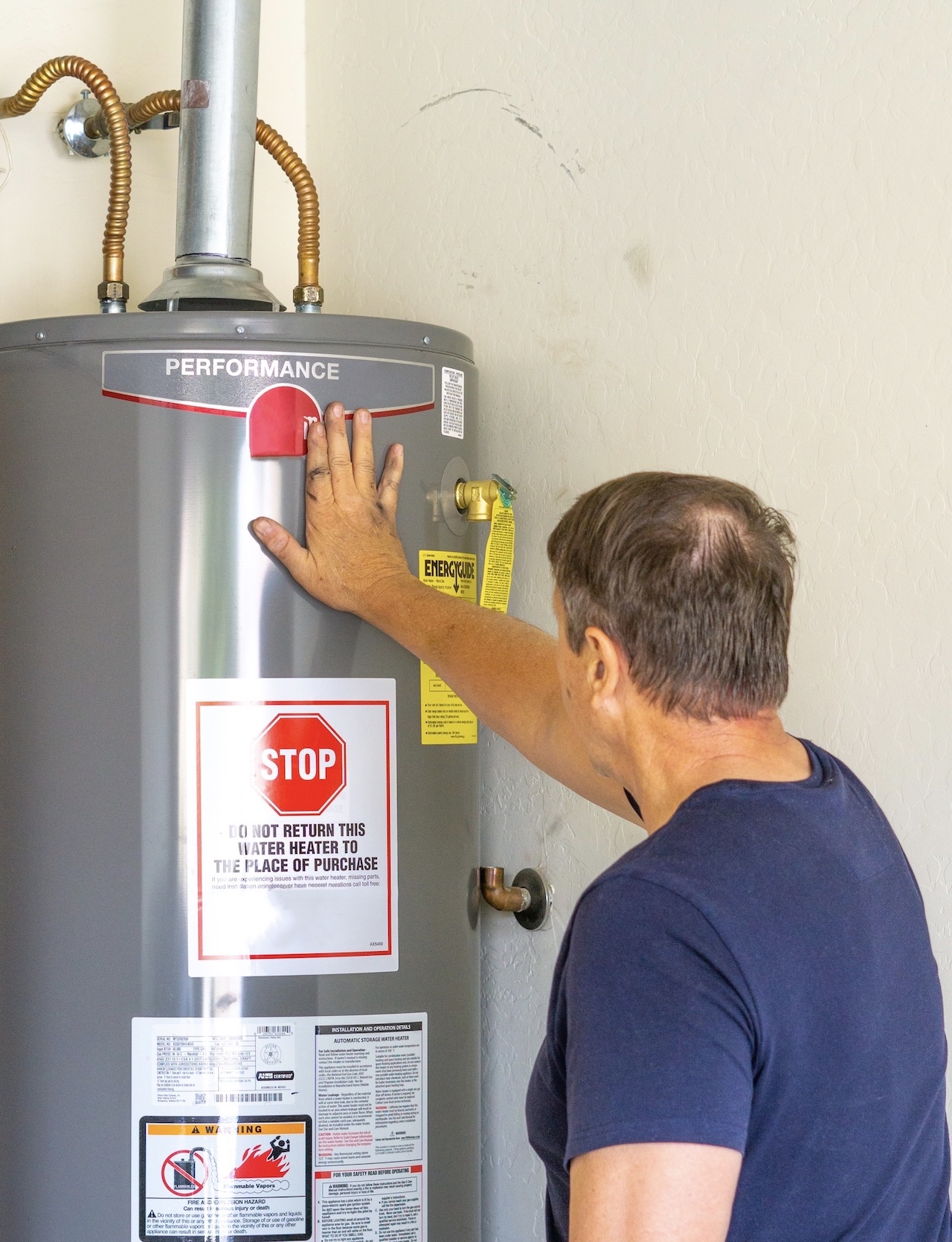Few things can disrupt your day quite like turning a handle to discover your water heater is not working. For everything from a morning shower to washing dishes, hot water is an essential part of our daily routine. When it stops flowing, quick action is necessary to prevent inconvenience and further complications.
This guide will help you understand potential causes, immediate steps you can take, and when to call in the experts for water heater repair.
The Importance of a Quick Response
Of course, a lack of hot water can significantly impact daily tasks and activities. From personal hygiene to cleaning and cooking, delaying repairs can lead to inconvenience and disruption in our routine. A malfunctioning water heater doesn’t just mean cold showers—if left unchecked, it can lead to more significant and costly problems down the line.
A small leak or malfunctioning component can quickly escalate into a major repair or even replacement of the entire unit, along with being a potential safety hazard, leading to risks such as scalding or electrical fires. Plus, malfunctioning water heaters can lead to energy waste and a higher utility bill—when water heating is already one of the largest household energy expenses.
Potential Causes of a Water Heater Not Working
When you find your water heater not working, several factors could be at play:
- Power Supply Issues: Electric water heaters rely on a stable power supply. A tripped breaker or a blown fuse can stop the heater from functioning.
- Gas Supply Problems: For gas water heaters, ensure the gas valve is open and the pilot light is lit. Any disruption in the gas supply can halt the heater function.
- Thermostat Malfunctions: Incorrect thermostat settings or a malfunction can prevent the heater from reaching the desired temperature.
- Leaking Water Heater: Puddles around the heater might indicate leaks, which require immediate attention to prevent water damage and ensure efficiency.
Immediate Steps to Take When Your Water Heater Stops Working
When faced with a water heater not working, here’s a checklist to help you troubleshoot what kind of water heater repair might be needed:
Check the Water Heater Power Supply
First, verify that your water heater is receiving power. For electric heaters, check the circuit breaker and ensure it hasn’t tripped. Reset it if necessary. For gas models, confirm that the gas supply is on and the pilot light is lit.
Inspect the Thermostat and Settings
Look at your water heater’s thermostat. Make sure it’s set to the appropriate temperature—typically between 120°F and 140°F. Adjust if needed and monitor for changes.
Examine for Visible Leaks
Inspect the area around the water heater for any signs of leakage. Leaks can indicate an internal problem that needs prompt attention. If a leak is found, turn off the water supply and power to the unit immediately.
Test the Pressure Relief Valve
The pressure relief valve helps maintain safe pressure levels within the tank. Lift the valve’s lever to ensure it functions correctly, allowing a burst of hot water to escape. If no water flows or only a trickle escapes, the valve may need replacing. Be aware that testing an older water heater’s valve may cause it not to seal properly afterward, potentially requiring replacement.
Basic Troubleshooting for Your Water Heater
Before calling in a professional, you can try these basic troubleshooting tips when your water heater’s not working:
- Reset the Water Heater: Locate the reset button on your electric water heater, typically found on the thermostat. Pressing it may resolve minor glitches.
- Flush the Tank: Sediment buildup can reduce heater efficiency. Flushing your tank regularly can improve performance and prolong its lifespan. Consult your manual for instructions.
- Check the Anode Rod: This component prevents rusting inside the tank. If it’s corroded, replacing it can help maintain your heater’s operation.
When to Call a Professional
If your attempts at troubleshooting don’t resolve the issue, or you run into something you don’t recognize, it’s time to contact a professional for water heater repair. Persistent problems, strange noises, or significant leaks require expert attention. Professionals can ensure safety and effective repair, minimizing the risk of further damage.
Tips for Preventing Future Water Heater Issues
Prevention is key to avoiding future problems with your water heater. Regular maintenance can keep your system running smoothly. Here are some tips:
- Schedule Annual Inspections: A professional inspection once a year can catch potential issues before they escalate into major problems.
- Regularly Flush the Tank: Every six months, flush your water heater to remove sediment buildup and improve efficiency.
- Monitor for Leaks: Keep an eye out for any signs of leaks and address them promptly to prevent water damage.
Turn to Maximum Plumbing for Heater Repair
A water heater not working can be a source of frustration, but knowing how to respond can turn a potential crisis into a manageable situation. Remember, regular maintenance and timely repairs are vital for keeping your water heater in top condition.
If issues persist, don’t hesitate to reach out to professionals for water heater repair. For reliable and expert solutions, contact Maximum Plumbing today—your comfort is our priority.



